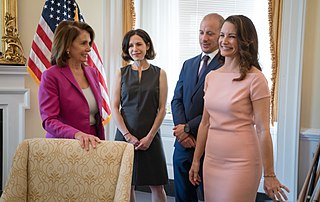
Goodwill ambassador is a post-nominal honorific title, a professional occupation and/or authoritative designation that is assigned to a person who advocates for a specific cause or global issue on the basis of their notability such as a public figure, advocate or an authoritative expert. Sometimes the role of a goodwill ambassador is presented as "Ambassador" or "Goodwill Ambassador" preceding the first and last name, the titled name of the individual is always presented with an organizational, regional or national affiliation. Goodwill ambassadors generally deliver goodwill by promoting ideals or positions from one entity to another, or to a population to establish a benevolent relationship. A goodwill ambassador may be an individual from one country who resides in or travels to another country, on a diplomatic mission at a peer to peer level; that is: country to country, state to state, city to city, or as an intermediate emissary representative of the people of a specific organization or cultural group such as an indigenous tribe, marginalized people or enclave population.

The United Nations Office on Drugs and Crime is a United Nations office that was established in 1997 as the Office for Drug Control and Crime Prevention by combining the United Nations International Drug Control Program (UNDCP) and the Crime Prevention and Criminal Justice Division in the United Nations Office at Vienna, adopting the current name in 2002.
The International Narcotics Control Board (INCB) is an independent treaty body, one of the four treaty-mandated bodies under international drug control law.

The Commission on Narcotic Drugs (CND) is one of the functional commissions of the United Nations' Economic and Social Council (ECOSOC), and is the central drug policy-making body within the United Nations System. The CND also has important mandates under the three international drug control conventions, alongside the three other treaty-mandated bodies: United Nations Office on Drugs and Crime, World Health Organization, and International Narcotics Control Board.
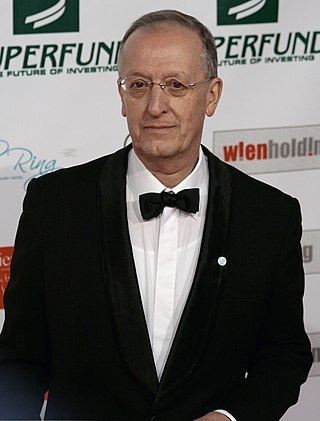
Antonio Maria Costa is an Italian economist. He lives in Vienna and Brussels.
UNHCR Goodwill Ambassador is an official postnominal honorific title, title of authority, legal status and job description assigned to those goodwill ambassadors and advocates who are designated by the United Nations. UNHCR goodwill ambassadors are celebrity representatives of the Office of the UN High Commissioner for Refugees (UNHCR) who use their talent and fame to advocate for refugees.

The United Nations Convention Against Transnational Organized Crime is a 2000 United Nations-sponsored multilateral treaty against transnational organized crime.
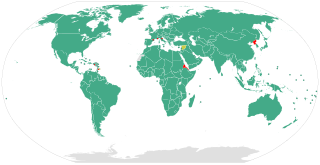
The United Nations Convention Against Corruption (UNCAC) is the only legally binding international anti-corruption multilateral treaty. Negotiated by member states of the United Nations (UN) it has been adopted by the UN General Assembly in October 2003 and entered into force in December 2005. The treaty recognises the importance of both preventive and punitive measures, addresses the cross-border nature of corruption with provisions on international cooperation and on the return of the proceeds of corruption. The UN Office on Drugs and Crime (UNODC) in Vienna serves as Secretariat for the UNCAC. UNCAC's goal is to reduce various types of corruption that can occur across country borders, such as trading in influence and abuse of power, as well as corruption in the private sector, such as embezzlement and money laundering. Another goal of the UNCAC is to strengthen international law enforcement and judicial cooperation between countries by providing effective legal mechanisms for international asset recovery.
The World Drug Report is a United Nations Office on Drugs and Crime annual publication that analyzes market trends, compiling detailed statistics on drug markets. Using data, it helps draw conclusions about drugs as an issue needing intervention by government agencies around the world. UNAIDs stated on its website "The use of illicit drugs needs to be understood as a social and health condition requiring sustained prevention, treatment, and care. This is one of the major conclusions emerging from the 2015 World Drug Report, published on 26 June by the United Nations Office on Drugs and Crime."
UNICEF Goodwill Ambassador is an official postnominal honorific title, title of authority, legal status, and job description assigned to those goodwill ambassadors and advocates who are designated by the United Nations. The United Nations International Children's Emergency Fund (UNICEF) along with other United Nations agencies, has long enlisted the voluntary services and support of prominent individuals as goodwill ambassadors to advocate causes. Their fame helps amplify the urgent and universal message of human development and international cooperation, helping to accelerate programmes for children and youth. UNICEF is responsible for a wide-variety of educational and health projects. UNICEF is greatly responsible for the eradication of polio campaign. There are over 250 UNICEF goodwill ambassadors.

Shehzad Roy is a Pakistani singer-songwriter, guitarist, activist, social worker and humanitarian. He started his singing career in 1995 and has recorded six albums since. He has recorded many hit songs such as "Saali," "Teri Soorat" and "Kangna," but is most famous for his 2008 socio-political album Qismat Apney Haath Mein. Roy is also the president and founder of Zindagi Trust, a non-government charitable organisation, that strives to improve the quality of education available to the average Pakistani.
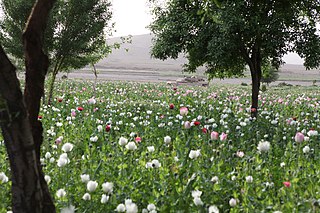
Afghanistan has long had a history of opium poppy cultivation and harvest. As of 2021, Afghanistan's harvest produces more than 90% of illicit heroin globally, and more than 95% of the European supply. More land is used for opium in Afghanistan than is used for coca cultivation in Latin America. The country has been the world's leading illicit drug producer since 2001. In 2007, 93% of the non-pharmaceutical-grade opiates on the world market originated in Afghanistan. By 2019 Afghanistan still produced about 84% of the world market. This amounts to an export value of about US $4 billion, with a quarter being earned by opium farmers and the rest going to district officials, insurgents, warlords, and drug traffickers. In the seven years (1994–2000) prior to a Taliban opium ban, the Afghan farmers' share of gross income from opium was divided among 200,000 families. As of 2017, opium production provides about 400,000 jobs in Afghanistan, more than the Afghan National Security Forces. In addition to opium, Afghanistan is also the world's leading producer of hashish.

Transnational organized crime (TOC) is organized crime coordinated across national borders, involving groups or markets of individuals working in more than one country to plan and execute illegal business ventures. In order to achieve their goals, these criminal groups use systematic violence and corruption. Common transnational organized crimes include conveying drugs, conveying arms, trafficking for sex, toxic waste disposal, materials theft and poaching.
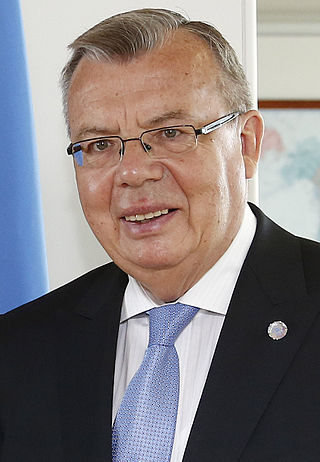
Yury Viktorovich Fedotov was a Russian diplomat. From 2010 to 2019 he served as executive director of the United Nations Office on Drugs and Crime (UNODC) and director-general of the United Nations Office at Vienna (UNOV) with the rank of Under-Secretary-General, after having previously served as the Ambassador of Russia to the United Kingdom.
United Nations Messenger of Peace is a special post-nominal honorific title of authority bestowed by the United Nations to "distinguished individuals, carefully selected from the fields of art, music, literature and sports, who have agreed to help focus worldwide attention on the work of the United Nations." Globally, present and past messengers of peace are the only public figures that are or may be legally and diplomatically known as a "United Nations Goodwill Ambassador". Other United Nations goodwill ambassador programmes in the UN system participants assign their title of authority (commission) using the agency name or patent program acronym or abbreviation such as: UN Women Goodwill Ambassador; UNICEF Goodwill Ambassador; UNESCO Goodwill Ambassador; UNAIDS Goodwill Ambassador; and other legal designations following their name.
The United Nations Interregional Crime and Justice Research Institute (UNICRI) is one of the five United Nations Research and Training Institutes. The institute was founded in 1968 to assist the international community in formulating and implementing improved policies in the field of crime prevention and criminal justice. Its work currently focuses on Goal 16 of the 2030 Agenda for Sustainable Development, that is centred on promoting peaceful, just and inclusive societies, free from crime and violence.

Nadia Murad Basee Taha is an Kurdish Yazidi human rights activist who lives in Germany. In 2014, she was kidnapped from her hometown Kocho and held by the Islamic State for three months.

Sustainable Development Goal 16 is one of the 17 Sustainable Development Goals established by the United Nations in 2015, the official wording is: "Promote peaceful and inclusive societies for sustainable development, provide access to justice for all and build effective, accountable and inclusive institutions at all levels". The Goal has 12 targets and 23 indicators.
UN Women Goodwill Ambassador is an official postnominal honorific title, title of authority, legal status and job description assigned to those goodwill ambassadors and advocates who are designated by the United Nations. UN Women goodwill ambassadors are celebrity advocates for the United Nations Entity for Gender Equality and the Empowerment of Women also known as UN Women; who use their talent, popularity or fame to assist the UN in better addressing a coordinated, comprehensive response to the interrelated issues of equality and working for the empowerment of women.
A goodwill ambassador is a professional occupation and/or authoritative designation assigned to a person who advocates for a specific cause or global issue on the basis of their notability such as a public figure, advocate or an authoritative expert.











